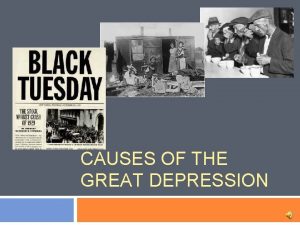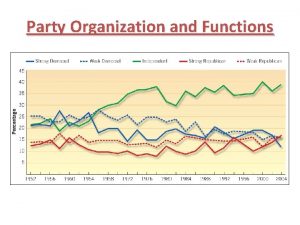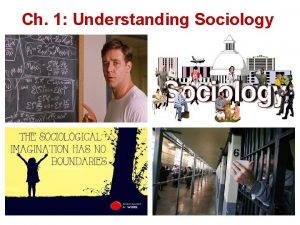Sociology Dinner Party SCLY 1 Families and Households























- Slides: 23

Sociology Dinner Party SCLY 1: Families and Households

Starter: The sociologist I would most like to invite to dinner is ……………… because …

Learning Objectives • A* demonstrate a refined understanding through a sensitive, well-informed comparison with mature sociological insight • C - consolidate their understanding by comparing them thoroughly and with good sociological insight • E - consolidate understanding of different sociologists’ views of the role of family by revising their individual standpoints and theoretical perspectives and comparing them to each other

Cocktail Hour: Drinks and canapés

Cocktail Party: Effective introductions As any good host knows, the key to a successful drinks party is often effective introductions. As your guests sip cocktails and eat canapés… you will need to introduce them to each other with thoughtful anecdotes or a basic introduction to help get them talking and feeling comfortable with everyone. C – Basic introductions that summarise the sociologist’s views on religion “This is Talcott Parsons, he believes…” B – Concise (and hopefully interesting/witty) introductions A – Think about how you could introduce sociologists to each other… “Talcott Parsons, this is Ann Oakley, you might be interested in his ideas about…. . Because…. . ”

Time for dinner!

Exciting! You’re hosting a sociological dinner party… As any good host knows, the key to a successful dinner party is often the seating arrangement. • Your task is to: 1. consider the conversational interests of your guests – jot down their likely topics of conversation on the paper plates (i. e. key ideas/concepts etc) 2. and devise a seating plan that will generate interesting conversation • Be prepared to justify your decisions!

Further guidance • Avoid seating guests with very similar opinions together – you want to avoid cliques. • However, also try to avoid seating guests who have directly opposing views – you also want to avoid heated arguments!

Guest List Definite RSVPs Possible attendees 1. 2. 3. 4. 5. 6. 7. 8. • R D Laing • Edmund Leach George Peter Murdock Talcott Parsons Friedrich Engels Eli Zaretsky Shulamith Firestone Fran Ansley Ann Oakley Charles Murray

Review seating plans • Justify your own seating plan • Have a look at another group’s seating plan – do you approve of their decisions? Can they justify them? • (Amend seating plans if you wish)

As any good host knows, it’s important to ensure everyone is having a good time and getting along well (or at least engaged in passionate debates) Working as a group, can you predict: ALL: What your guests (or small sections of your table) are likely to talk about? MOST: Areas of consensus and conflict between the table or small sections of your table? SOME: Precise examples of consensus and conflict between the table or small sections of your table? Which sociologists might dominate the discussion? Who will get along well with who?

Plenary • What have you learnt this lesson? • How could this dinner party lesson help you write better essays? • Who do you need to get to know (AKA revise) better?

Resources to print:

George Peter Murdock Talcott Parsons

Friedrich Engels Eli Zaretsky

Shulamith Firestone Fran Ansley

Ann Oakley Charles Murray

R D Laing Edmund Leach

In The Dialectic of Sex, Firestone argued that gender inequality originated in the patriarchal societal structures imposed upon women through their biology; the physical, social and psychological disadvantages imposed by pregnancy, childbirth, and subsequent child-rearing. She advocated the use of cybernetics to carry out human reproduction in laboratories as well as the proliferation of contraception, abortion, and state support for child-rearing; enabling them to escape their biologically determined positions in society. Firestone described pregnancy as "barbaric", and writes that a friend of hers compared labour to "shitting a pumpkin". Firestone explored a number of possible social changes that she argued would result in a post-patriarchal society, including the abolition of the nuclear family and the promotion of living in community units within a socialist society.

‘When wives play their traditional role as takers of shit, they often absorb their husbands legitimate anger and frustration at their own powerlessness and oppression. With every worker provided with a sponge to soak up his possibly revolutionary ire, the bosses rest more secure. ’ Fran Ansley (1972)

Liberal feminists, such as Ann Oakley argue that gender role socialisation is responsible for sexual division of labour. Girls and boys are socialised in different ways. For example girls are encouraged to take on caring roles, which could lead to them having jobs such as nurses in the future. The family can influence the way boys and girls are socialised. For example, in the home there is manipulation and canalisation. Manipulation is when boys and girls are encouraged to play with gender specific toys. Canalisation is when specific behaviour is encouraged or discouraged. For example if a boy falls over and hurts himself, he is encouraged not to cry and to act in a brave way. On the other hand, if the same thing happened to a girl, she would be given more sympathy. Ann Oakley argues that there is still an expectation for women to take on the housewife/mother role. Because of this, it is more difficult for women to pursue careers as men do. Oakley also claims that employers expect women to play the role of housewife rather than pursue a career. This patriarchal ideology is justified by men through claims that women are more suited to caring roles because of their maternal instinct.

Oakley put forward the idea that a 'socially constructed' gender was built on a more fundamental sex which was biologically based. This 'gender' had to be learnt by individuals and it had to be taught to those (younger) individuals by (older) individuals. Parents, suggested Oakley, didn't simply socialise their children. Since gender is fundamental to all societies it is the teaching of gender roles that is most important to any society. Hence parents were engaged in gender socialisation argued Oakley. Parents achieved through the processes of 'manipulation', 'canalisation' and 'verbalisation'. Oakley used anthropological* research that suggested some other societies used different ideas of 'masculinity' and 'femininity' as their role models. Oakley argued that gender and gender roles were socially constructed. *Anthropology = the study of simple/tribal societies; anthropological research is usually highly detailed field research

 The dinner party by mona gardner problem
The dinner party by mona gardner problem Rich roman food
Rich roman food Short story with alternate ending
Short story with alternate ending Judy chicago dinner party meaning
Judy chicago dinner party meaning Mao revolution is not a dinner party
Mao revolution is not a dinner party The dinner party plot diagram
The dinner party plot diagram Every cook praises his own broth
Every cook praises his own broth Big families vs small families
Big families vs small families Fourth party logistics advantages and disadvantages
Fourth party logistics advantages and disadvantages Two households romeo and juliet
Two households romeo and juliet In fair verona where we lay our scene meaning
In fair verona where we lay our scene meaning Prologue of romeo and juliet in modern english
Prologue of romeo and juliet in modern english Households and firms circular flow model
Households and firms circular flow model National survey of unbanked and underbanked households
National survey of unbanked and underbanked households In one large city 40 of all households own a dog
In one large city 40 of all households own a dog Two households, both alike in dignity.
Two households, both alike in dignity. Margatroth
Margatroth Blended family
Blended family Three randomly selected households are surveyed 2 6 7
Three randomly selected households are surveyed 2 6 7 What is the purpose of the prologue of romeo and juliet
What is the purpose of the prologue of romeo and juliet In order to protect loans made by stockbrokers
In order to protect loans made by stockbrokers Balanced diet breakfast lunch dinner
Balanced diet breakfast lunch dinner Cleanse the palate after a rich dinner and before dessert
Cleanse the palate after a rich dinner and before dessert Prophetic diet
Prophetic diet













































